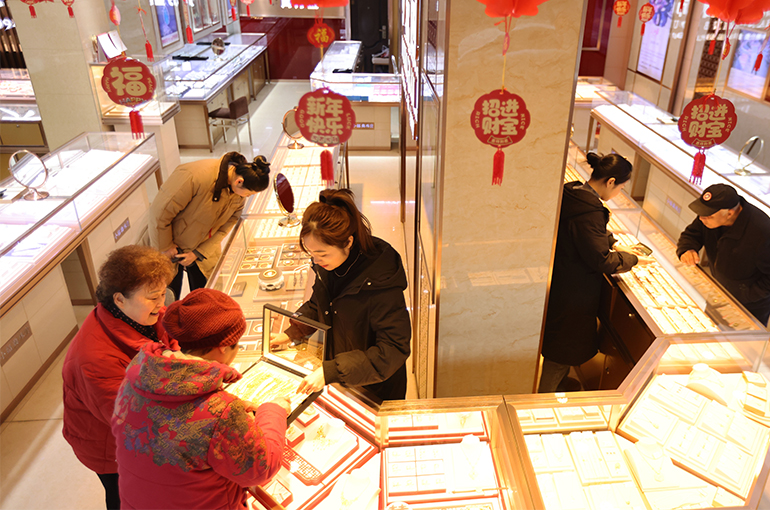 China’s Economy Gets Off to Positive Start in 2025
China’s Economy Gets Off to Positive Start in 2025(Yicai) March 18 -- China's economy showed positive momentum in the first two months of the year, with industrial production, consumer spending, and fixed asset investment each rising more quickly than a year ago, laying a solid foundation for achieving this year’s 5 percent growth target.
Industrial production climbed 5.9 percent in January and February from a year earlier, compared with a 5.8 percent increase for the whole of last year, according to figures released yesterday by the National Bureau of Statistics.
Output rose despite a high base in the same period of last year, reflecting the strong resilience of China’s industry, NBS spokesperson Fu Linghui told reporters. In addition, cutting-edge technologies such as artificial intelligence are increasingly driving industrial development, he noted.
Equipment and high-tech production jumped 10.6 percent and 9.1 percent, respectively, in the two months ended Feb. 28, versus 7.7 percent and 8.9 percent in 2024.
In terms of products, the output of new energy vehicles, service robots, and industrial robots climbed 48 percent, 36 percent, and 27 percent, respectively. Surging demand for AI computing power pushed up server output by 73 percent.
Consumer Spending
China’s retail sales of consumer goods rose 4 percent to CNY8.37 trillion (USD1.16 trillion), 0.5 percentage point faster than in the whole of last year. Online retail sales grew 7.3 percent to CNY2.28 trillion, with online retail sales of physical goods up 5 percent to CNY1.86 trillion, accounting for more than 22 percent of the total.
The boom in tourism, culture, and sports consumption during the Chinese New Year holiday, as well as the expansion of the trade-in subsidy policy for old consumer goods, were the main contributors to the ongoing recovery in consumption, Fu said.
Thanks to trade-in subsidies, retail sales of communications equipment, cultural and office supplies, furniture, household appliances, and audio-visual equipment jumped 26 percent, 22 percent, 12 percent, and 11 percent, respectively, the NBS said.
The consumer confidence index for February was 0.9 percentage point higher than that in January, rising for the third consecutive month, Fu added.
The government also yesterday unveiled a plan to “vigorously boost” consumption and expand demand through measures to lift incomes and beef up social security, among other initiatives. The government’s annual work report delivered to parliament on March 5 said the main economic priorities for this year is increasing consumption and expanding demand.
Investment
Investment in fixed assets, excluding rural households, rose 4.1 percent to CNY5.26 trillion, compared with 3.2 percent growth last month, according to the NBS. Infrastructure and manufacturing investment rose 5.6 percent and 9 percent, respectively.
Meanwhile, real estate investment showed a modest sign of recovery, sinking 9.8 percent to CNY1.1 trillion, versus a 10.6 percent drop in 2024. Sales of new-build homes fell 2.6 percent to CNY1.03 trillion, versus a 17.1 percent slump last year.
As the effects of a series of policies introduced last year to support the real estate market become evident, the market has continued to stabilize this year, Fu said, adding that some areas are still in the process of adjustment.
China will continue to lift restrictions in the property market, accelerate the implementation of renovation projects, and fully release housing demand, Fu noted.
Private investment remained the same as last year, increasing 6 percent in the first two months from a year earlier, the NBS data showed.
Investment in high-tech industries grew 9.7 percent, with that in information services, e-commerce services, computer and office device manufacturing, and aerospace vehicle and equipment manufacturing surging 66 percent, 32 percent, 32 percent, and 27 percent, respectively.
China bundles together the economic data for the first two months of each year to iron out the effects of the Chinese New Year holiday, which falls at a different time each year.
Editors: Dou Shicong, Futura Costaglione